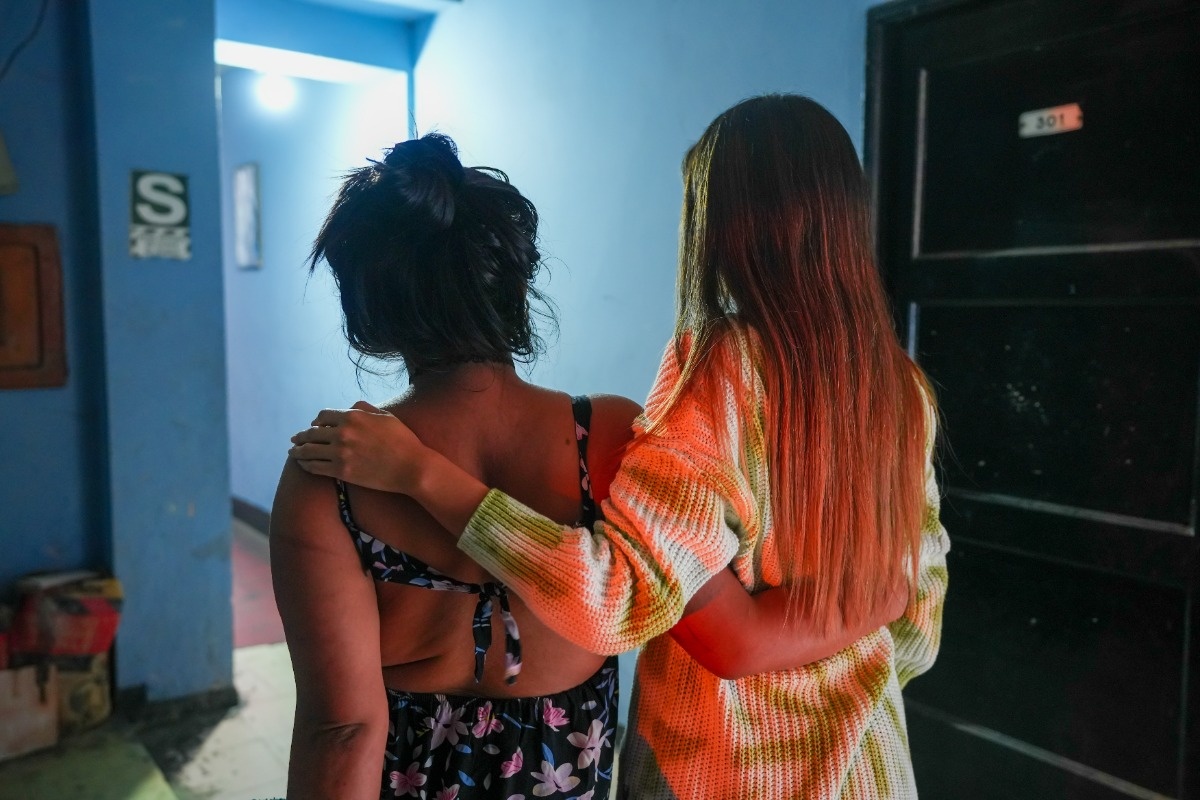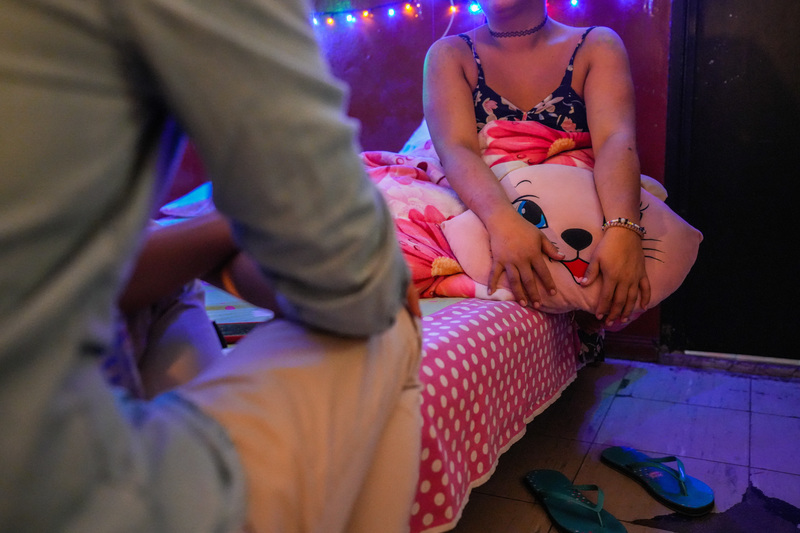Transgender Woman In Lima Accesses Medical Care, Social Support
Socios En Salud improves access to care for transgender women in Lima
Posted on Jun 26, 2023

Content warning: this story contains mention of child sexual abuse and violence against transgender women
When Alexia*, 26, first arrived in Lima she was disappointed. She didn't like the cooler weather, and the thought even crossed her mind to return to Pucallpa, a city in the Peruvian jungle where she had lived before.
"What I missed most was making money,” she says. “The cold didn't let me work."
During her first winter in Lima, she had to wear two jackets to endure the cold as she stood on the streets, waiting for clients.
More than 62% of transgender women in Peru are engaged in sex work, due to a lack of employment opportunities, according to Peru’s Ombudsman’s Office.
Alexia is one of them.
She was forced into sex work at the age of 11, when she was still living in her native Iquitos. There, her days were split between a family at home that did not accept her and a shelter for children and adolescents from which she had to escape for safety reasons.
"I practically grew up alone," she says.
She arrived in Pucallpa at 15 years old. That’s when Alexia, assigned male at birth, started taking hormonal contraceptives, as a gender-affirming method due to lack of access to hormone therapy, to begin her transition.
Unexpected Diagnoses
In Lima, 86% of transgender women have faced discrimination, and more than half experienced domestic violence. That violence and discrimination is not only reflected in the limited employment opportunities or family rejection that transgender women face, but also in their limited access to health care, often due to their lack of identity documents that match their gender. Many are unaware of health conditions that they are living with, including sexually transmitted infections (STIs).
That’s one of the urgent issues that Socios En Salud, as Partners In Health is known in Peru, is responding to through JunTrans, a community-based intervention that seeks to improve access to health care for transgender women in Lima.
Free screenings are critical to that mission. JunTrans screened more than 400 transgender women for STIs, tuberculosis and mental health disorders between July 2022 and March 2023 by running mobile clinics and visiting homes for transgender women in Lima.
Alexia was among the women who accessed free screening in December 2022, previously unable to access any health services due to her lack of identity documents. The results were not what she expected: she tested positive for HIV and tuberculosis.
She describes the whirlwind of feelings that swept over her as like a bucket of cold water.
"I didn't feel like working,” she recalls. “I was disgusted by men—angry."
Fear, anger, and other complex feelings are common with such diagnoses, according to Carla Rodríguez, coordinator of JunTrans. It’s why the program goes to great lengths to connect patients not only with care for their physical health conditions, but also mental health care and social support, such as food and safe housing.
"We can want many things [for them], but we cannot pressure the person," she says.
After her diagnoses, Alexia was immediately connected with psychotherapy delivered by mental health specialists from the JunTrans team. Over time, as she processed her feelings over several sessions, she came to terms with her conditions, realizing how many people lived full, beautiful lives while managing their conditions.
"I'm not the only person in this world who has it," she recalls thinking. "So why should I be crying or getting depressed?”
She then agreed to start treatment, which included antiretroviral treatment for HIV and oral medication for TB. She was also assigned a community health worker for support and accompaniment.

‘A beautiful stage in my life’
Alexia considers herself a romantic girl. She likes ballads that talk about love, and in her room in downtown Lima, heart-shaped stuffed animals are everywhere.
She says that the room she previously rented, located inside the same house where she now lives, was bigger and had the perfect amount of space for all the dolls and stuffed animals she wanted. When she changed rooms, she had to get rid of many of those things.
"It hurt me to sell a lot of things," she confesses.
She’d had to leave the first room as fast as possible, fleeing to Huánuco as a wave of violence against transgender women swept through downtown Lima in February. Girls she knew, including others supported by JunTrans, were murdered by an organized crime group that charged quotas to trans women for working on the streets.
The violence not only put Alexia’s life in immediate danger, but also affected her health, as she was forced to leave her supply of medications behind.
Alexia has since returned to the house and is now in stable health, following her antiretroviral treatment to the letter and resuming her treatment for tuberculosis.
In the meantime, the JunTrans team is helping her to obtain her ID card, which she has never had before. She already has big plans for the future, once her identity documents are in order.
"God willing, I'm going to another country.... Italy or Paris [France]," she says.
Having access to health care, and a path to get her ID card, has allowed her to dream again. Now, Alexia is at peace with herself, confident that her health will open new doors.
"I'm in a beautiful stage of my life," she says.
If you or a loved one are experiencing a mental health crisis, help is available. In Peru, call 113 (option 5). In the United States, call 988 for the Suicide & Crisis Lifeline.
*The patient's name has been changed for safety reasons

